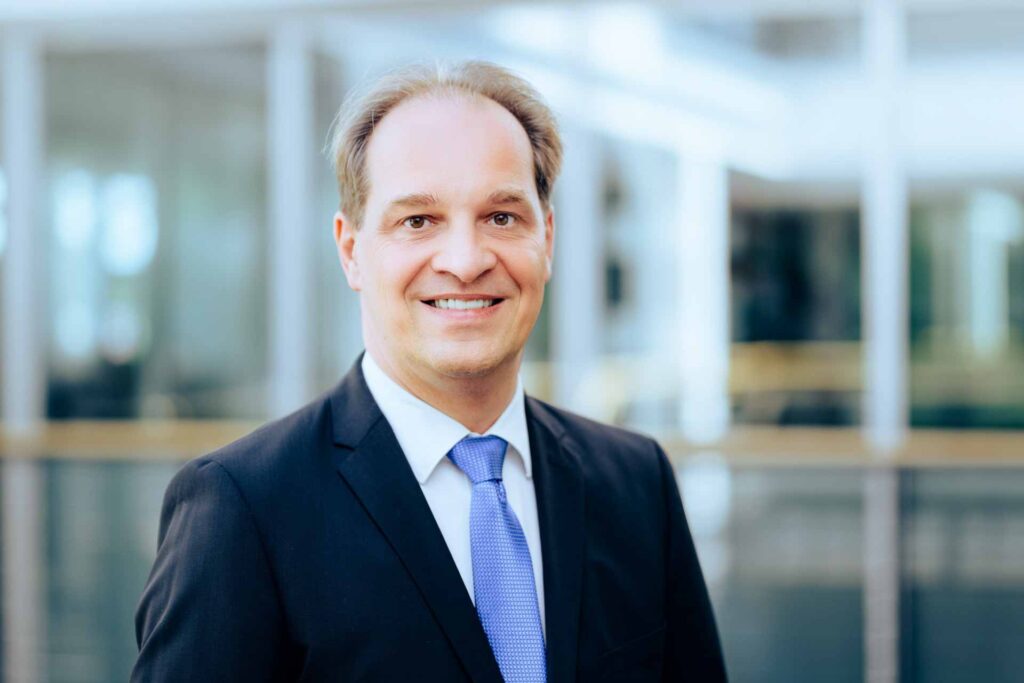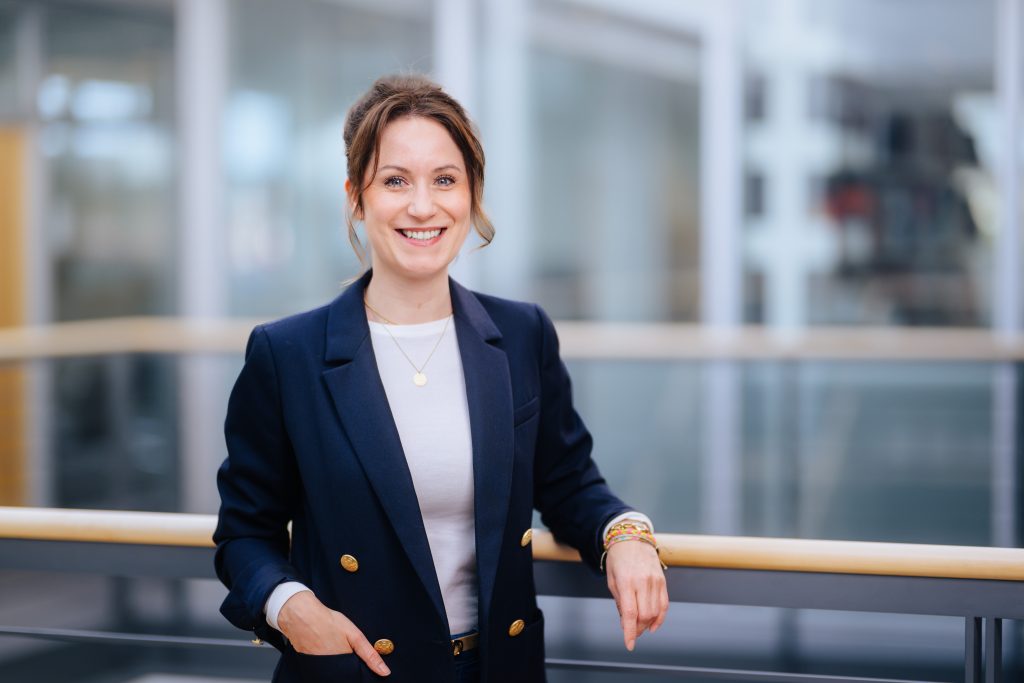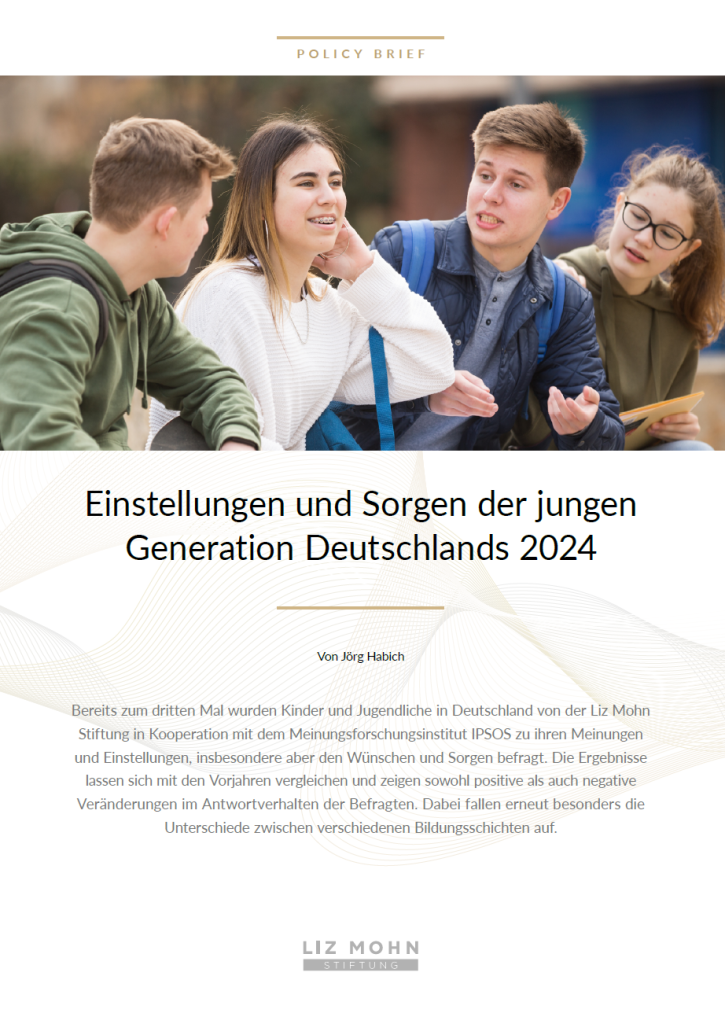August 22, 2024
How do children and adolescents perceive their own future, and what changes do they wish for in society? To give young people a voice, the Liz Mohn Foundation addresses these questions and publishes the survey annually ahead of the Salzburg Trilogue. The topic of this year’s Salzburg Trilogue is: “Europe’s Role in an Ambiguous Future. Pioneer, In-Between or Laggard?” The survey results show both positive and negative changes in the responses compared to previous years.
Overall, there is a shift towards optimism among the 500 respondents. While in 2022, 42 percent believed in a better personal future, this figure rose by 10 percentage points to 52 percent in 2023 and remains stable at 53 percent in 2024.
A significant majority of 83 percent appreciate freedom of expression in Germany. This value has increased by five percentage points compared to the previous year. About two-thirds (64 percent) find it important to contribute to the community. A social service year is supported by the majority, regardless of age, gender, and education. Social engagement and participation in elections are most frequently mentioned as ways to strengthen democracy in Germany.
The importance of politics to young people is unmistakable, although the majority feel they lack the power to effect political change (57 percent). A two-thirds majority (69 percent) wishes for current political topics to be more extensively covered in school.
Liz Mohn, founder and chair of the Liz Mohn Foundation, emphasizes: “At this year’s Salzburg Trilogue on Europe’s role in the future, the survey results will again be discussed with leading figures from politics, business, and culture. We must take the concerns and wishes of children and young people seriously. They are our future!”
Contrary to their confidence in their own lives, only a minority of 18 percent view Germany’s future positively. The world’s divisions and the challenges facing Germany and Europe are also felt by children and adolescents: almost one in three young people is worried about the war in Gaza and Ukraine. The consequences of rising prices are also real in the daily lives of children and adolescents. 47 percent expressed concern about this, and 80 percent feel personally affected. Concerns such as the death of a family member (58 percent), fear of not completing their education (42 percent), or fear of the consequences of climate change (41 percent) remain very present among children and adolescents.
“The political and social leaders should take the concerns and wishes of children and adolescents seriously. That’s why the Liz Mohn Foundation creates exchange and discussion formats for students. We particularly advocate for the treatment of political topics,” says Dr. Jörg Habich, managing director of the Liz Mohn Foundation, regarding the results.



